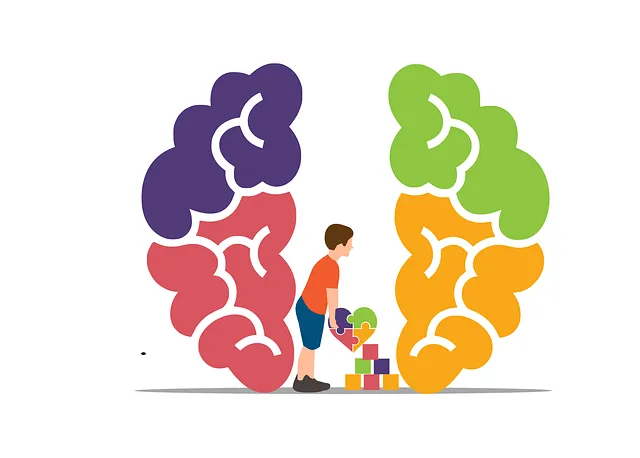In Louisville, mental illness stigma severely hinders access to support and treatment, leading many to self-medicate or avoid help altogether. Louisville Kaiser Permanente behavioral health services distinguishes itself with a holistic approach, integrating public awareness campaigns and self-care routine development. Through open dialogues, community engagement, educational initiatives, and accessible programs like Social Skills Training, Stress Reduction Methods, and Mindfulness Meditation, they reduce stigma and empower individuals to prioritize their mental well-being. This model sets a standard for the industry, fostering a more inclusive society where mental health is normalized and prioritized.
Mental illness stigma remains a significant barrier to effective mental healthcare. This article explores targeted efforts to reduce this stigma in Louisville, Kentucky, focusing on strategies employed by Louisville Kaiser Permanente Behavioral Health Services—a leading provider with impactful reviews. Through community engagement and education initiatives, they’ve broken down barriers, fostering an environment where individuals feel more comfortable seeking necessary support. Understanding the profound impact of stigma is crucial, highlighting the need for continued efforts to normalize conversations around mental health.
- Understanding Stigma: Its Impact on Mental Health Seekers in Louisville
- Louisville Kaiser Permanente Behavioral Health Services: A Model for Stigma Reduction
- Community Engagement and Education: Effective Strategies to Break Down Stigma Barriers
Understanding Stigma: Its Impact on Mental Health Seekers in Louisville

In Louisville, like many places, mental illness stigma continues to be a significant barrier for individuals seeking support. This perception often discourages people from discussing their struggles openly and pursuing necessary help, such as those considering Louisville Kaiser Permanente behavioral health services reviews. Stigma can manifest in various forms—from whispered judgments to systemic discrimination—all contributing to the isolation and shame experienced by many with mental health conditions. It hinders individuals from understanding that mental illness is akin to physical ailments, requiring proper care and treatment for recovery.
The impact of stigma is profound, especially in a bustling city like Louisville where diverse communities coexist. It can deter people from seeking professional help, opting instead for self-medication or no treatment at all. However, initiatives aimed at reducing stigma play a crucial role in fostering an environment where individuals feel safe and supported. These efforts include promoting understanding through education, encouraging open conversations about mental health, and advocating for equal access to evidence-based treatments, such as Social Skills Training and Stress Reduction Methods. Mindfulness Meditation has also shown promise in helping individuals cope with stigma’s emotional weight, offering a practical tool for self-care within the community.
Louisville Kaiser Permanente Behavioral Health Services: A Model for Stigma Reduction

Louisville Kaiser Permanente Behavioral Health Services stands as a beacon of hope and progress in the fight against mental illness stigma. Their innovative approach focuses on holistic care, integrating public awareness campaigns and self-care routine development for better mental health. By fostering open dialogues and promoting understanding through reviews and community engagement, they’ve created a supportive environment where individuals can access necessary behavioral health services without fear of judgment.
This model emphasizes the importance of self-care practices in reducing stigma. Through educational initiatives and accessible resources, Kaiser Permanente empowers its members to take charge of their mental well-being. By addressing the root causes and challenges associated with mental illness openly, they’ve set a powerful example for other healthcare providers, contributing significantly to a more inclusive and supportive society where everyone can prioritize and maintain their mental health.
Community Engagement and Education: Effective Strategies to Break Down Stigma Barriers

Community engagement and education play a pivotal role in reducing the stigma surrounding mental illness. By fostering open conversations about emotional regulation and stress management, organizations like Louisville Kaiser Permanente behavioral health services can shift societal perceptions. Reviews of their behavioral health services often highlight innovative programs that focus on community-based learning and support groups, making mental health education more accessible to diverse populations. These strategies not only break down barriers but also encourage early intervention, as individuals become empowered to seek help without fear of judgment.
A well-designed Mental Health Education Program can equip people with the knowledge to identify signs of struggle in themselves and others, promoting an environment where emotional expression is normalized. Through interactive workshops and community partnerships, organizations like Kaiser Permanente can offer practical tools for stress management, ultimately reducing the impact of stigma on individuals seeking behavioral health services. This collective effort ensures that mental well-being becomes a priority, encouraging folks to embrace their journeys towards healing without the shadow of social barriers.
Mental illness stigma reduction is a collective effort that requires understanding, education, and community engagement. As evidenced by Louisville Kaiser Permanente behavioral health services reviews, programs focused on destigmatizing mental health can significantly improve access to care. By implementing strategies outlined in this article—from raising awareness to fostering community support—we can create a more inclusive environment where individuals are empowered to seek help without fear of judgment. This, in turn, will lead to better mental health outcomes for all.






